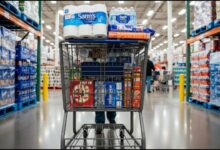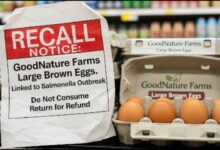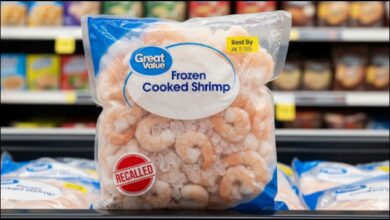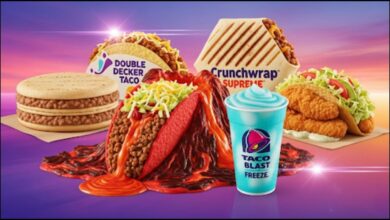Major Listeria Recall Hits Sam’s Club, Other Retailers, After Cheese Products Linked to Deadly Outbreak
A nationwide Listeria recall of over 60 dairy products from Rizo-López Foods has prompted urgent warnings from health officials. The products, including cotija cheese sold at Sam's Club, are linked to a deadly, decade-long outbreak.
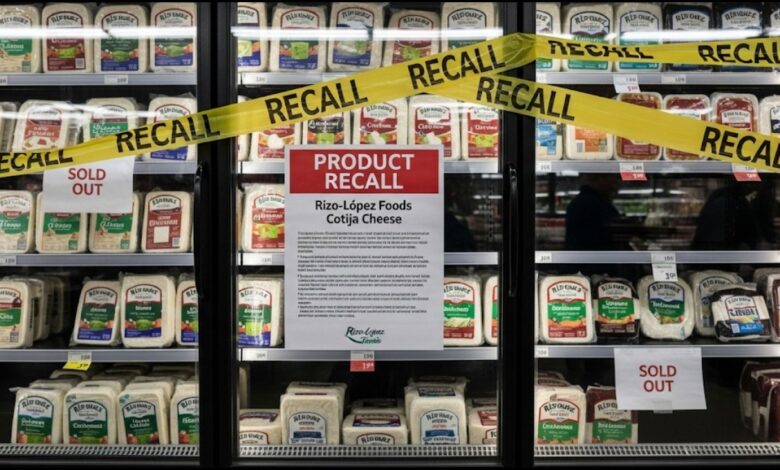
Federal health officials are urging consumers to check their refrigerators for dozens of cheeses, yogurt, and sour cream products sold at major retailers, including Sam’s Club and Costco, following a widespread Listeria recall. The recall was initiated by Rizo-López Foods, Inc. after its dairy products were linked by government investigators to a deadly, decade-long outbreak of Listeria monocytogenes that has resulted in multiple hospitalizations and at least two deaths.
Major Listeria Recall Hits Sam’s Club
| Key Fact | Detail |
| Recalled Products | Over 60 cheese and dairy items, including queso fresco, cotija cheese, yogurt, and sour cream. |
| Reason for Recall | Potential contamination with Listeria monocytogenes. |
| Affected Retailers | Sam’s Club, Costco, Walmart, Whole Foods, and numerous other stores nationwide. |
| Public Health Impact | 26 illnesses, 23 hospitalizations, and 2 deaths reported across 11 states since 2014. |
Sweeping Listeria Recall Affects Dozens of Brands
The voluntary recall, issued by California-based Rizo-López Foods, encompasses a wide range of its dairy products sold under various brand names. These include Tio Francisco, Don Francisco, Rizo Bros, San Carlos, and El Huache. The items were distributed nationwide and sold both in retail stores and used as ingredients in prepared foods like sandwiches and salads available at deli counters.
In a statement, the Food and Drug Administration (FDA) advised consumers to immediately discard any recalled products. The agency also warned food service establishments to check their inventory and not serve or sell the items. The full list of recalled products, including brand names, package sizes, and UPC codes, is available on the FDA’s website.
The recall was triggered after the Centers for Disease Control and Prevention (CDC), in collaboration with the FDA and state health officials, identified a strong link between the products and a persistent Listeria outbreak. Testing conducted on a cheese sample from Rizo-López Foods in January 2024 found the specific strain of Listeria that matched the one responsible for illnesses dating back to June 2014.
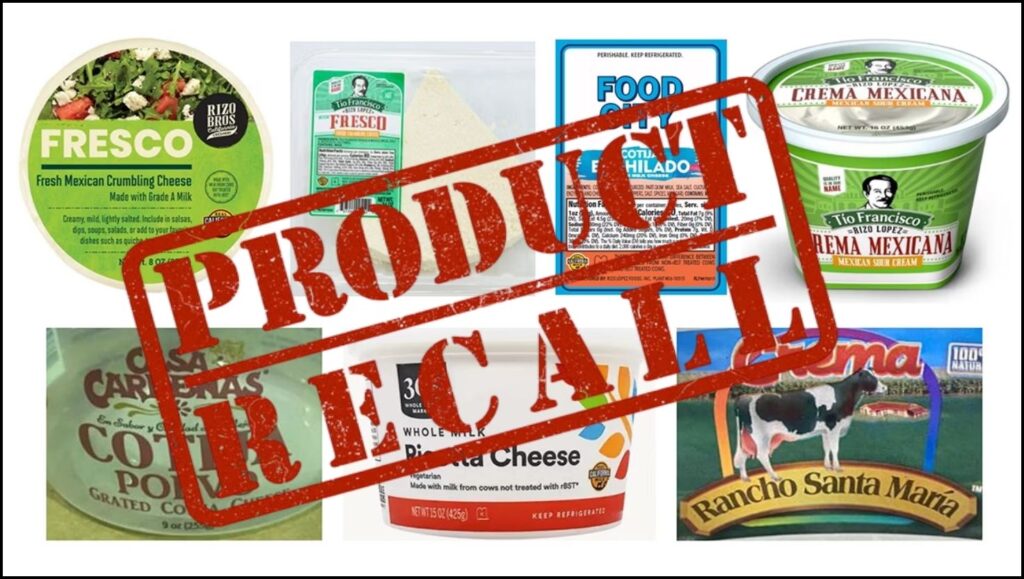
Understanding the Public Health Threat
The investigation highlights the serious and persistent nature of Listeria contamination. The CDC noted that new illnesses were reported as recently as December 2023, indicating the contaminated products were still in the market. The outbreak has affected 11 states, with California, Colorado, and Florida reporting the highest number of cases.
“This is a long-running outbreak that has caused significant harm over the years,” said Dr. Ian Williams, chief of the CDC’s Outbreak Response and Prevention Branch, in a previous briefing on foodborne illnesses. “Identifying the source is a critical step to preventing more people from getting sick.”
What is Listeria and Who is at Risk?
Listeria monocytogenes is a bacterium that can cause a serious infection called listeriosis. Unlike many other bacteria, it can grow even in the cold temperatures of a refrigerator. Healthy individuals may experience short-term symptoms like high fever, severe headache, stiffness, nausea, abdominal pain, and diarrhea.
However, the infection can be far more severe and even fatal for certain vulnerable populations. This includes pregnant people, as the infection can lead to miscarriage, stillbirth, or premature delivery. Newborns, adults aged 65 or older, and individuals with weakened immune systems are also at a significantly higher risk of developing a severe illness. The CDC estimates that about 1,600 people get listeriosis each year, and about 260 dies.
Consumer Guidance and Food Safety Measures
Health officials have issued clear guidance for consumers who may have purchased the affected products.
- Do Not Consume: Do not eat, sell, or serve any of the recalled cheese, sour cream, or yogurt products. Check the FDA’s list to identify specific items.
- Discard or Return: Throw the products away or return them to the place of purchase for a full refund.
- Clean Thoroughly: Listeria can spread to other foods and surfaces. The CDC recommends cleaning your refrigerator, containers, and any surfaces that may have touched the recalled products. Use a solution of one tablespoon of liquid bleach to one gallon of water, or a sanitizing spray, and wash hands thoroughly after cleaning.
Retailers like Sam’s Club have been actively notifying members who purchased the items. In a notice to its customers, the company provided details of the recall and instructions for obtaining a refund.
The FDA’s investigation at the Rizo-López Foods facility is ongoing. Officials are working to determine the root cause of the contamination and ensure the company implements corrective actions to prevent future outbreaks. The incident serves as a critical reminder of the importance of robust food safety protocols throughout the supply chain, from production to the consumer’s home.
USDA Announces Major Sausage Recall of Over 24,000 Pounds Due to Plastic Contamination



